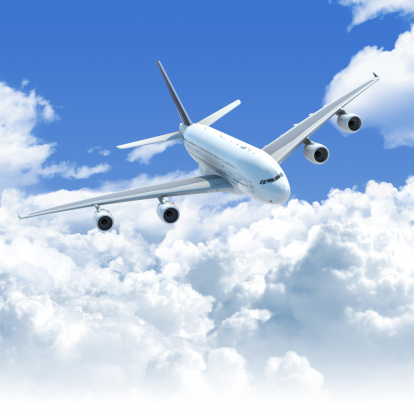Transportation
How Airlines Have to Treat the Risks After This Tragic Plane Crash
Published:
Last Updated:
The tragic plane crash in Europe this week has turned out to be even more tragic than most travelers and media watchers may have ever imagined. The copilot appears to have deliberately crashed the flight of Germanwings, the regional carrier owned by Deutsche Lufthansa. The loss of life matters more than economics here, but all airlines are going to have to figure out how to deal with a new risk beyond terrorism — employee sabotage risks. Source: Thinkstock
Source: Thinkstock
Whether or not it turns out that this copilot employee had ties to terrorism, how can airlines protect themselves from employee sabotage as a severe business risk? The first thing to consider is that most airlines have some form of insurance policies that cover property damage and the loss of life. Generally, these policies would come into play in crashes of pilot error, so-called acts of God, adverse weather, mechanical failure and the like. The problem is that employee sabotage is deliberate. This could fall under a gray area in many policies.
24/7 Wall St. has checked with insurers about various forms of insurance coverage around the aerospace sector. Just because policies are available does not imply that they are universally held. With some air carriers being less financially sound than others, you can imagine that not every insurance policy is owned just because it is available.
ALSO READ: The World’s Safest Airlines Include Lufthansa
AIG’s Aerospace insurance shows that its airline coverage includes war, hijacking and terrorism. It also covers hulls, and many other aspects: physical damage, passenger and third-party liability, comprehensive general liability, and so on. A call into AIG has not yet been returned.
A look at Munich Re was much more specific and far more clear on how airplanes and airlines can protect themselves. Munich Re showed that special coverage can be purchased for losses against acts of war or terror against an aircraft, including civil war, sabotage, strike, civil unrest, internal commotion, hijacking and the like. It was shown not to cover losses caused by nuclear weapons. Munich Re further said that liability policies generally exclude war, terrorism and similar situations.
The long and short of the matter is that certain types of insurance policies are not universally held by all airlines just because they are available.
So, what do U.S. and other airlines have to worry about for their finances? Specifically, everyone knows large industry acts against the airline industry are catastrophic. The U.S. government gave billions of dollars to the major U.S. air carriers in the wake of the 9/11 terror attacks in 2001. Without this government bailout, the airlines would have likely all been unable to operate normally and most carriers would have folded. Their stocks all tanked.
Deutsche Lufthansa trades under the LHA ticker in Germany’s Xetra, and there is a fairly valuable lesson here for how it can affect airlines when foul play comes into the situation. Shares were last seen down 3% at €12.95, but they have been as low as €12.77 and as high as €13.22 in Thursday’s trading. Trading on Tuesday, the day of the crash, exhibited what you might have suspected — shares fell handily on the news, and then recovered throughout the day. That is a classical textbook trading pattern, and the drop went from just over €14.00 down to €13.04, and ultimately recovering to €13.56.
ALSO READ: Battle Between US, Persian Gulf Carriers Over Airline Routes Heats Up
Then on Wednesday, the shares fell to €13.37. The revelation about the copilot takes on a new twist, taking the shares down 3% more to €12.95. The reality is that airline pilot suicide is not the norm. It happened with an Egyptian airliner in the late 1990s, but this is such a rare event that you have to wonder if air carriers would take on riders in this form of an insurance policy.
Lufthansa’s investor relations shows that there are 462,772,266 shares outstanding. The €12.95 share price in Germany generates a market cap right at €6 billion. Lufthansa shares overseas have traded in a range of €10.69 to €20.30 in the past 52-weeks.
If you use the price of €14.00 for before news of the crash broke, Lufthansa’s market cap at the time would be €6.48 billion. In short, this one crash has eliminated roughly €500 million in value from the carrier. That translates to a loss of almost 8% of Lufthansa’s total market capitalization.
Lufthansa just recently announced that its 2014 earnings achieved their target at €954 million in operating profits on €30 billion in annual revenues. Along with its earnings, Lufthansa gave a forecast for 2015 that its enhanced earnings target will be over €1.5 billion in adjusted EBIT. That target may have just become much harder to hit.
U.S. airlines have to consider what has happened here to Lufthansa over its Germanwings airline crash. The good news for U.S. carriers is that copilots are not allowed to be left alone without another crew member present when the pilot has to use the bathroom.
ALSO READ: Air Travel Surges to Highest Level in 7 Years
A financial advisor can help you understand the advantages and disadvantages of investment properties. Finding a qualified financial advisor doesn’t have to be hard. SmartAsset’s free tool matches you with up to three financial advisors who serve your area, and you can interview your advisor matches at no cost to decide which one is right for you. If you’re ready to find an advisor who can help you achieve your financial goals, get started now.
Investing in real estate can diversify your portfolio. But expanding your horizons may add additional costs. If you’re an investor looking to minimize expenses, consider checking out online brokerages. They often offer low investment fees, helping you maximize your profit.
Thank you for reading! Have some feedback for us?
Contact the 24/7 Wall St. editorial team.